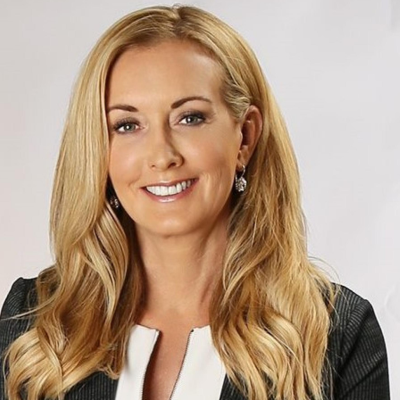Pesticide makers continue quest for immunity from lawsuits by sick farmers
By Estefanía Pinto Ruiz, KWQC TV6 News
LA MOTTE, Iowa — Ray Bickel spent over a decade driving a truck through giant corn and soybean fields in Clinton County, Iowa, applying pesticides. He says it was good work, while it lasted.
In 2017, he had a heart attack. The doctors ran tests to find out what caused it and found something else. “He was diagnosed with chronic lymphocytic leukemia, which is blood and bone marrow cancer. And he was diagnosed with stage three rectal cancer,” his wife, Margarette Bickel, said.
Doctors suggested it could be because of his years working with Roundup, a widely-used herbicide. Now he is one of many farmers suing the maker, Monsanto, which is owned by Bayer.
“It was a very successful chemical,” Ray Bickel said, claiming it did the job — controlling weeds and producing good crops. “It worked well for the farmers. I actually liked to spray it.”
Bickel worked with Roundup from 1974 to 1988 at various farms, according to his complaint.
Farmers use herbicides like Roundup to kill weeds, preventing them from destroying crops. They plant genetically modified corn and soybeans that are resistant to the chemical, and when it’s sprayed, the weeds die while the crops flourish. Herbicides like Roundup are widely used on American corn and soybean farms.
“Roundup, glyphosate, has been a major, if not the only, product that we use. It helps preserve the soil, helps keep the water cleaner, and so we need to have that,” said Dave Struthers, district five director for the Iowa Soybean Association. “It’s been a low-cost, effective product. We need to keep using it.”
But in recent years, Bayer, which now manufactures Roundup, has faced approximately 181,000 lawsuits claiming that this pesticide, particularly its main ingredient, glyphosate, causes personal injuries, including cancer.
To combat the onslaught of litigation, Bayer has been pushing legislation in nine states, including Iowa and Missouri, that would shield the company from liability.
Bickel filed a lawsuit against Bayer in 2024, claiming his exposure to it caused him to get cancer. While the process has just started, his family hopes to get justice, if not reclaim lost time.

Margarette Bickel said the cancer has already taken years off his life. “It is terminal, so we know what’s going to happen at some point,” she said.
Proposed law shields manufacturers
Currently, the label on Roundup does not include warnings about potential carcinogenic effects or requirements to use personal protective equipment beyond regular clothing.
The label reflects the Environmental Protection Agency’s determination that glyphosate is safe, which the agency decided in a review process that included looking at studies submitted by Bayer as well as those found in available literature.
Most of the civil lawsuits against Bayer argue that the company failed to warn Roundup users of potential cancer risks. Applicators like Bickel can spend more than 12 hours a day spraying Roundup for many days straight during the growing season.
“It didn’t have a warning on there about this could cause cancer or anything like that,” said Bickel. “So, I don’t know — I might not have gotten too many instructions about safety.”
Without clear warnings, he assumed he didn’t need to take precautions as the chemical settled on his skin during application.
“It didn’t have an odor, so you assumed that it wouldn’t hurt you,” Bickel said. “I don’t know — water doesn’t have an odor and it doesn’t hurt you, so I guess we assumed Roundup was the same way.”
“Failure to warn” suits rely on state liability laws. The pesticide immunity bills being introduced around the country would offer protection from that argument as long as the labeling on pesticides is otherwise compliant with federal regulations.
Immunity bills have been proposed in Florida, Iowa, Mississippi, Missouri, Oklahoma, Tennessee, and Wyoming. Similar bills have already been signed into law in North Dakota and Georgia.
The legislation would make it harder for people to sue pesticide companies, even if they believe a product caused serious health problems.
Opponents of the immunity bill want explicit warning labels to protect users like Bickel: a warning that the product may cause cancer, not to get it on your skin, and to wear adequate protection when spraying it.
“Educating farmers on the safe use of herbicides — what protective gear you have to wear, under what circumstances, and that type of thing — that’s really where we ought to be spending our energy, rather than saying this group of folks can’t use evidence in a court when they’re sick or they’ve gotten ill,” said Aaron Lehman, president of the Iowa Farmers Union, which is against the bill.
Lehman says granting pesticide manufacturers immunity would be unjust.
“It’s unfair that a pesticide company would get to hide behind that label when we don’t get that opportunity as farmers,” said Lehman. “If we do something wrong, we’re liable on our farms, right? [The bill] definitely favors and tilts the playing field away from farmers toward the pesticide makers.”
Bayer officials deny that Roundup causes cancer. The company also says the proposed bills only apply to labeling issues, and people would still be able to sue the company for product failures or warranty issues.
“This does not provide blanket immunity for pesticide manufacturers. It just doesn’t. It’s very, very specific to the way a product is labeled,” said Jessica Christiansen, head of Bayer’s crop science communications.
Bayer has blanketed Midwest states with pro-Roundup billboards, radio and television advertisements touting its benefits, and warning that limiting its usage would impact food security and raise prices on groceries.
In Iowa and Missouri, the bills failed to pass during the states’ respective 2025 legislative sessions, which just ended. But they could return next year.
Meanwhile, Bayer has spent at least $10 billion to settle claims.
Bayer Chief Executive Bill Anderson recently said the company could halt glyphosate production altogether because the expenses associated with Roundup litigation are piling up.
“Frankly, given the huge market that Monsanto and Bayer have for Roundup in the state of Iowa, I really don’t see that happening,” said James Cook, lawyer for Bickel and other Iowa plaintives.
But even if Bayer did shutter production, it wouldn’t necessarily mean glyphosate would go away – more likely, it would just come from China.
Cancer link with glyphosate is contentious
The EPA reviews the science around the potential health and environmental effects for pesticides, including whether a product causes cancer, every 15 years. The agency’s findings determine what goes on a label. EPA has found glyphosate to be safe, but the agency is updating its human health evaluation after a court required it to do so.
Bayer officials have said glyphosate does not cause cancer. They pointed to a 2018 peer-reviewed paper called the Agricultural Health Study, published in the Journal of the National Cancer Institute. That study followed pesticide applicators’ health through surveys and found no link between solid tumors or lymphoid malignancies and glyphosate.
Lynelle Phillips, an assistant teaching professor in the Department of Public Health at the University of Missouri, evaluated the Agricultural Health Study cited by Bayer.
“There were a lot of flaws in that study,” Phillips said, noting her opinions are her own and don’t represent the university.
For example, initial survey results only spanned about six years “and usually for non-Hodgkin’s lymphoma, you need at least 10—more like 20 to 30—years to go by,” Phillips said. A second survey was done a decade later, but the response rate was low, Phillips said, which doesn’t make for reliable data.
Some of the other studies Bayer uses to back its safety claims might be unreliable, as well, Cook said.
“If you look at the studies Bayer submitted to the EPA when the label was being developed and the product was approved for the market, they were, for the most part, studies that were requested and endorsed by Bayer and Monsanto,” Cook said.
Because there is disagreement about glyphosate’s safety even in the scientific literature, Phillips said looking at papers that review various studies can be helpful. For example, a 2021 meta-analysis of different studies by Dennis D. Weisenburger found that “the epidemiologic studies provide ample evidence for an association between exposure to [glyphosate] and an increased risk of non-Hodgkin lymphoma.”
“It does seem to be carcinogenic,” said Phillips.
The International Agency for Research on Cancer, an agency within the World Health Organization responsible for cancer research, also analyzed available peer-reviewed studies from the scientific literature. They found that glyphosate is probably carcinogenic to humans.
According to the IARC report, which was published in 2017, the most observed link is with non-Hodgkin lymphoma, but the analysis says some studies do show an association with other illnesses, including the type of cancer Bickel has.
Both Weisenburger’s and the IARC’s analyses included the Agricultural Health Study in their analyses.
As the debate continues on paper, Ray Bickel is dealing with the fact of cancer in his body.
Bickel had his latest scan on April 9, and a tumor was found on his liver. His cancer is now considered stage four, which means it has spread, and he is undergoing chemotherapy.
Sitting at his home, surrounded by corn fields, his family can’t believe lawmakers considered passing an immunity law for glyphosate manufacturers. They think glyphosate is the source of Bickel’s illness.
“How in their right mind can any lawmaker pass this and say, ‘It’s ok, you don’t have to worry about the damage if you cause him cancer, take his life, end it years early and leave behind a wife and family and kids,’” said Margarette Bickel. “What gives them the right to do that?”
(Featured photo is of a corn field in Guthrie County, Iowa, by Margarette Bickel.)
(This story is a product of the Mississippi River Basin Ag & Water Desk, an independent reporting network based at the University of Missouri in partnership with Report for America, with major funding from the Walton Family Foundation. Avery Martinez contributed reporting to this story.)





May 21, 2025 @ 1:58 pm
It is extremely telling, that a paper cited by a glyphosate expert witness is the one that gets to be cited.
https://www.clinical-lymphoma-myeloma-leukemia.com/article/S2152-2650(22)00261-0/abstract
Especially when Weisenberger accuses people of being industry sponsored. In fact, this seems to be a general trend among the plaintiffs in these cases. Zhang for example out of Washington gets to cite her debunked 41% in USA Today coverage without any note that she’s being paid and paid well. Meanwhile, anything Bayer says is put through the lens of “They’re the corporation profiting”. There’s a trail of profiteers, leading back through Portier, Benbrook, Zhang, Weisenberger, who would not have made bank off of rampant chemophobia. I am preaching to the opposition here at the EWG, since there seems to be a definite motive of pleading special exception to every time a study comes up with no connection to NHL. The AHS is extremely telling. Somehow every study that finds that Roundup is safe is somehow wrong and flawed, and every study that roundup is safe is correct and indisputable.